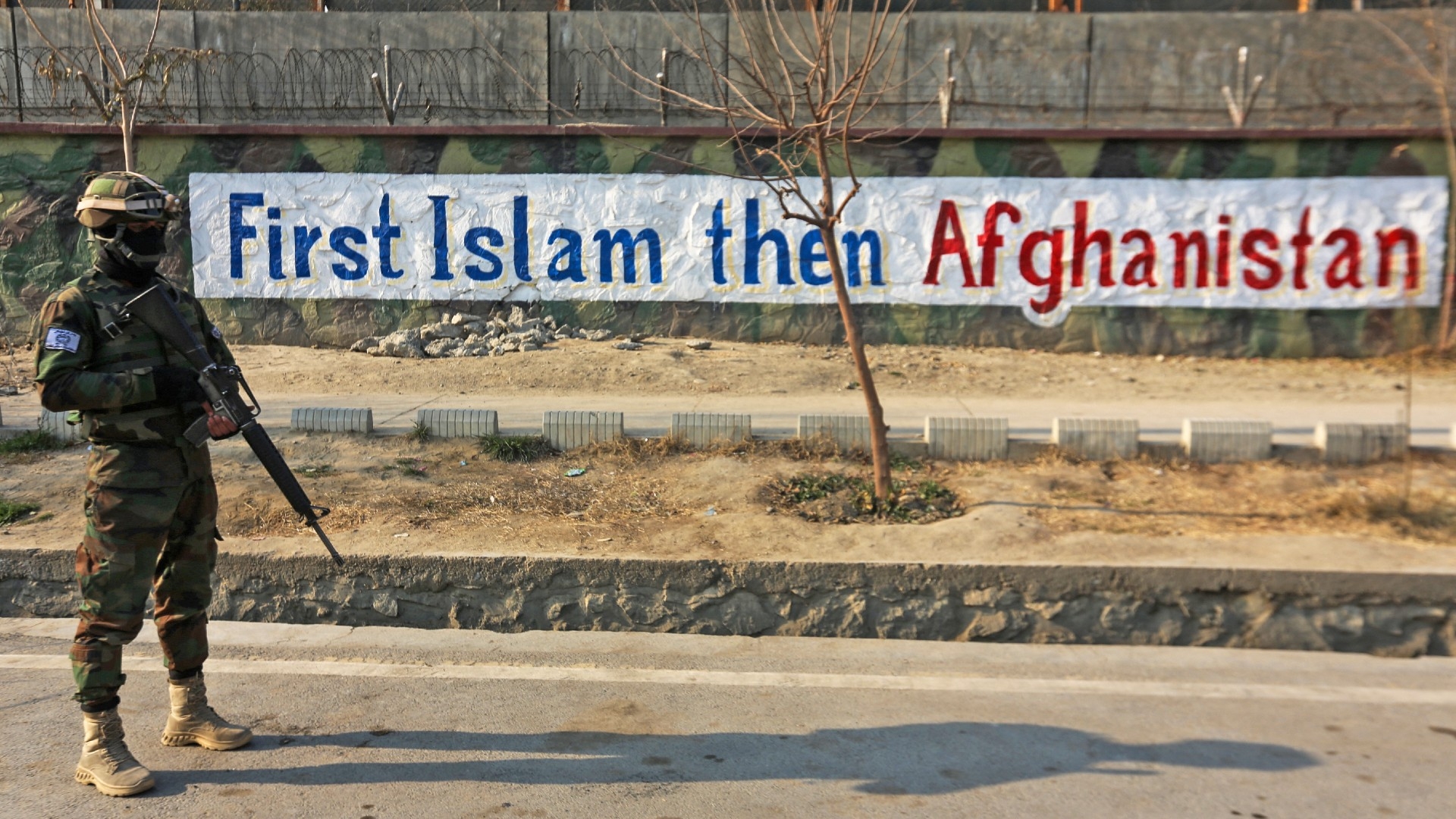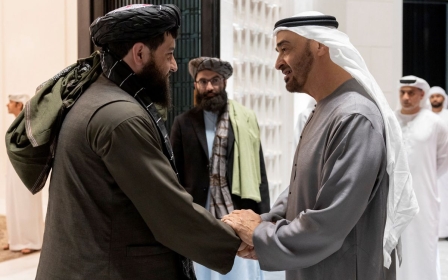Afghanistan: Worried Muslim countries meet over Taliban’s bans on women and girls

As international outrage grows over the Taliban’s recent decrees banning Afghan women from universities and employment at NGOs, the Organisation of Islamic Cooperation (OIC) is set to meet on Wednesday to discuss the issue.
The meeting of the 57-country bloc is the third time it has come together to discuss the situation in Afghanistan since the Taliban returned to power in August 2021.
'The largest organisation of Muslim states potentially condemning the outlandish interpretation of sharia in Afghanistan will be a slap in the face of the Taliban'
- Andreas Krieg, King's College London
The OIC has already made its feelings clear by swiftly condemning the Taliban’s decrees on women when they were issued late last month.
Describing the ban on Afghan women working for foreign organisations as “perplexing,” the OIC called on the Islamic Emirate “to revisit this decision for the sake of social inclusion of women and the undisrupted continuation of the much-needed international humanitarian safety net in Afghanistan”.
That was joined by similar statements from the United Arab Emirates, Turkey, Pakistan, Qatar, Saudi Arabia and Egypt’s al-Azhar, the seat of Sunni learning.
New MEE newsletter: Jerusalem Dispatch
Sign up to get the latest insights and analysis on Israel-Palestine, alongside Turkey Unpacked and other MEE newsletters
With the Taliban claiming to be making these policies according to Islamic law, the symbolism of the world’s Muslim countries coming together in concern is certainly significant.
“The fact that the largest organisation of Muslim states discusses and potentially condemns the outlandish interpretation of sharia in Afghanistan will be a slap in the face of the Taliban government, who always presents itself as acting in the name of Islam,” Andreas Krieg of King's College London told Middle East Eye.
Together, the condemnations and OIC meeting are examples of a “soft power blow to the Taliban and their religious authority in the country”, he added.
Since the Taliban returned to power in the summer of 2021, residents, elders and religious leaders in the country and abroad have challenged its claims that restricting education and work for women is permissible in Islam.
However, the Islamic Emirate says it does have support among Muslim scholars from other countries.
The government-run Bakhtar News Agency recently quoted a delegation of religious scholars from Libya, Egypt, Sudan and Palestine, who declared “their full support” of the Islamic Emirate after visiting several high-level government officials during a visit to the country.
According to Bakhtar, the delegation also criticised other Muslim-majority countries for failing to acknowledge the Islamic Emirate as the official government of Afghanistan.
Unlike many organisations, the OIC has maintained a presence in Afghanistan since the Taliban took over, and in November inaugurated a new office in Kabul at a ceremony attended by the Islamic Emirate’s acting foreign minister, Amir Khan Muttaqi.
Abdul Qahar Balkhi, the Taliban’s foreign ministry spokesman, said the Taliban commends the OIC’s commitment to Afghanistan.
“We appreciate the OIC opening their office in Afghanistan as well as creating a fund to assist the people of Afghanistan,” Balkhi told MEE, adding that the Islamic Emirate would prefer the organisation speak to it directly over Afghan matters.
“We request the OIC to hold meetings with officials of the Islamic Emirate to better grasp relevant situations prior to making statements and holding conferences. This will lead to the OIC making informed decisions when it comes to the affairs of Afghanistan instead of relying on other influences,” Balkhi said.
Taking further steps
Krieg said by its nature as a multinational organisation comprised of 57 member states, it is difficult to make any OIC decision binding. The OIC, added Krieg, is not a supranational entity.
“They have no authority to hold governments to account. It requires consensus, and sovereignty remains with the member states.”
He cites previous examples of the OIC condemning Israel, Myanmar and India “to no avail”.
Because of this, Krieg fears the Islamic Emirate will be even less likely to take any further criticisms from the group to heart. He said the only way to really get the Taliban to take the OIC seriously is for the organisation to take the harshest possible steps.
'It is the OIC’s duty to raise these issues … They are making it publicly known that they have called on the Islamic Emirate to reverse its decisions'
- Faiz Zaland, university professor, Kabul
“If the OIC went as far as eventually ostracising the Islamic Emirate … it would be a massive blow to the Afghan government's standing domestically and regionally.”
Faiz Zaland, a university professor and analyst based in Kabul, also agreed that the ultimate impact of the meeting and condemnations is in the hands of the Islamic Emirate itself.
“It is the OIC’s duty to raise these issues … They are making it publicly known that they have called on the Islamic Emirate to reverse its decisions,” Zaland tells MEE.
However, Zaland said the primary issue is that the Taliban has its own vision for the kind of societal standards it wants to see put in place before all women and girls can return to school and work across the country.
“Without that kind of environment, it is unlikely that women and girls will be able to return to school and work en masse,” no matter what other Muslim countries and organisations say, he added.
Middle East Eye delivers independent and unrivalled coverage and analysis of the Middle East, North Africa and beyond. To learn more about republishing this content and the associated fees, please fill out this form. More about MEE can be found here.





